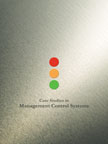Operations Management
 |
Details
Textbook:
Pages : 329;
Paperback;
210 X 275 mm approx.
Workbook:
Pages :
239; Paperback;
210 X 275 mm approx, Sample Applied Theory Questions
Courier charges extra
Pricing
Textbook Price: Rs. 900;
Workbook Price: Rs. 700;
Available only in INDIA
Detail Table of Contents
Click below to view
HTML
Work Measurement : Chapter 8
SUMMARY:
Work measurement involves the estimation of the amount of human effort needed for producing a unit of specified output from an operation. The amount of time that is usually taken by a well trained worker, operating under normal working conditions, to produce one unit of output is referred to as work standard. Operations managers use work standards when assigning work to employees, scheduling work in departments, and evaluating employee performance.
|
|
database which provides standards that have been set for common tasks or movements. Managers need not set fresh standards for these common tasks; they can simply refer to the database to obtain them. The predetermined motion time study is a technique for setting work standards that uses the recorded standard time data for each of the basic motions (reach, grasp, move, turn, stretch, etc.) associated with performing a task to determine the time required to perform the whole task. Adjustments are made to this data since operating conditions vary from firm to firm and job to job.Work sampling is a method of analyzing the work by taking a number of observations at random. Historical analysis is a non-scientific technique that makes use of past data to set standards. Employee self timing is another technique for setting standards. In this method, employees maintain a log of the time spent on each specific task. This technique is generally used to set standards for white-collar workers. Managers use work standards to evaluate the performance of employees and take decisions regarding rewards and compensation.



